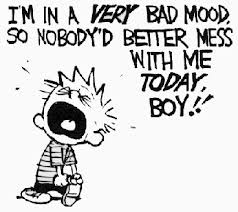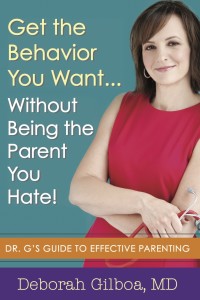This is Part 3 of my Q&A blog series in which I alternately answer parenting questions and teen questions. If you’re just joining us, you can check out Part 1 “How do I keep my child away from a bad friend?” and Part 2 “Who was that guy my mom was with?”
Today’s Question: I get that nobody is happy all the time. I’m not! But when my 9 year old son is in a bad mood, it’s not fun for anyone. I’ll admit, I’m not always very patient with him when he’s like that. Obviously that doesn’t help. So, what do I do when my kid is in a bad mood?
Bad moods are kind of like stinky cheese. You open the wrapper and they permeate everything and everyone. The unhelpful thing that parents often do is try to get a child out of a bad mood by distraction or becoming the court jester. When parents rush in believing it’s always their job to turn that frown into a smile then they’re in for a lot of trouble and they’re not helping their children learn to deal with the ups and downs of life.
Life can be really frustrating. Life can be disappointing. And, if your child expects that everyone will be treated equally, then life is also unfair! OK, so we’re all agreed that crap happens and so do bad moods. Kids need us to teach them essential life skills: resilience and GRIT, which is all about being able to rub up against the challenging aspects of life without wilting and giving up. GRIT also involves the ability to figure out what’s your next best move in the current situation.
When a bad mood strikes there isn’t really anything that a parent has to do. That may be a newsflash for some. It’s only when the bad mood is accompanied by unacceptable behavior – rudeness, unkindness, destruction, etc. that parents need to intervene. Otherwise, how will our children learn to be good people?
I was talking to my friend, Dr. Deborah Gilboa (AskDrG.com) about her most recent book, Get the Behavior You Want Without Being the Parent You Hate. One of the points she made that jumped out at me was about how we need to teach children that their feelings are less important than their behavior. She’s spot on. As caring parents and educators, we have focused too much on children’s emotions. (“What are you feeling!?”) When that becomes the end-all and be-all, kids assume that their emotions are more important than what they do or say. What little Max feels is not an acceptable excuse for everything he may do. The clear message for Max: Feel whatever you’re feeling. If you’re in a bad mood, be in a bad mood. But you do not have the right to intentionally be cruel or in any way disrespectful to anyone (online or off).
Instead of providing kids with excuses for bad behavior (“She just did it because she was upset.” “He only said that because he’s jealous.”) let’s do a better job teaching them how to deal with unsettling emotions. Let’s also help them understand that sometimes, even when we are disappointed, hurt, or frustrated, we can calm down and express ourselves without hurting anyone. These life skills will help all of us behave in ways that make us feel good about who we are.
Got a parenting question about raising tweens and teens? Just ask.













